Motorcycle clubs revving up veterans
They enter the car park in a procession of leather and steel, with skulls in slouch hats printed on their jackets. Some are tormented by inescapable trauma caused by war, but the rumble from their motorcycle engines is nirvana for these veterans.
The president of the Veteran Motorcycle Club Federal Chapter, Bones, has an old school, chopper inspired, wide glide Harley Davidson and the leather get-up to match. With a coffee in hand, he mingles with club members standing near the line of motorcycles parked in the sun. The conversation ranges from engines to military operations to comical tales of childhood mischief.
A Vietnam veteran animatedly narrates stealing a precious clock from the girl he liked in school. Despite his keen interest in mechanics, he discovered that reassembling the cogs was a more delicate and challenging task than he had anticipated. He sheepishly handed the girl a box of parts.
Bones smiles beneath his full greying beard. It’s hard to imagine that fifteen years ago he would have been in a state of hypervigilance and agitation. Classic symptoms of post-traumatic stress disorder (PTSD.)
Boxing day of 2005, after the birth of his second child, Bones received a phone call from his boss asking if he would go to Iraq.
The details were vague. It would be a minimum of eight months and preparation started Monday.
Seventy soldiers from across the country were brought together for four weeks of training. Their deployment was shrouded in secrecy and they received a quick briefing before boarding a plane in the middle of the night. At the airport, there were no goodbyes from loved ones.
“I don’t know when I will be back,” Bones told his wife.
The unit’s return to Australia mirrored their departure. Little recognition, no family in attendance, and medals distributed in a back room. The Vietnam veteran describes an even colder reception. He is still tormented by night terrors. The ability to move forward battling a mental health condition is no simple task and he is faced with an enemy he can’t see.
An unseen enemy
Bones came back from Iraq diagnosed with PTSD and struggling to transition into the life he left behind. His service had turned him into a different person.
The older veterans joke that they still watch each other’s backs as they talk, but I occasionally catch their gaze flick over my shoulder and I understand there is a reality beneath their dark humor.
Three in four veterans meet the criteria for a mental health disorder and almost half will develop a lifetime anxiety condition, according to estimates from the 2015 Transition and Wellbeing Research Programme report by the Department of Veterans Affairs.
Certain situations in everyday life can activate flashbacks causing fear, anger and grief. These symptoms of PTSD arise suddenly or intensify over time and can damage lives and relationships. Bones tells me the majority of club members have been diagnosed with different levels of PTSD amongst other mental health disorders.
“I think classic symptoms would be being agitated a lot and hypervigilant,” Bones says.
“Those types of things lead to anger, a lot of people with PTSD suffer anger issues which spiral. They then look at alcohol and drugs as a way to try and deal with it, which ultimately makes it worse.”
A person’s mind has some similarities to a clock. Once the functions have been altered by an external force or trauma, reassembling the system is intricate and complex.
Isolation becomes a double-edged sword
There is a hesitancy when Bones is sharing his story and he doesn’t spend time on the details of his time in Iraq.
“You get all the family around and people are on eggshells, you start talking and people don’t want to know about it. You get a sense that people are asking but not really prepared for what you are going to talk about. So quite often it’s easier just not to.”
Returning home to be surrounded by people that don’t share experiences serving in the military becomes fatiguing and often leads to isolation and disconnection.
One veteran explains that no amount of love or support from those closest to him can equal the understanding from members of the Veterans Motorcycle Club. His voice catches as he describes the reaction from his wife when he seeks time alone. Other veterans nod in agreement.
Bones, like many others, joined the military at seventeen. His life plans and identity became entwined with the forces. After being discharged, Bones lost his community and sense of belonging within months. From one day managing million dollar contracts in the Canberra offices, he was suddenly sweeping leaves as a volunteer to feel part of something again.
Trauma is not exclusive to taking tours of duty. Leaving the military after decades of service can lead to coping mechanisms, such as disconnecting from family and friends. A solitary drink at the bar or one more game on a poker machine can easily spiral into addiction and substance abuse. Alcoholism was the most common lifetime disorder from the Department of Veteran Affairs 2018 report.
The long road to civilian life
Bones’ unit was part of the third training team sent to set up a logistics college for the Iraqi soldiers. Using events transpiring each day, he taught hundreds of trainees how to plan operations and support troops with ammunition, food and medical supplies. During Bones’ eight-month deployment his unit was left without a security team for weeks and an incapable leader.
“They sent a psych team over to interview all of us,” he said.
“If it’s bad enough for them to know back in Australia, for them to send a psych team over, then why not do something about it? What does it take for something to change?”
His frustration with the situation is unmistakable. By day three Bones was told the six-week training programs had to be reduced to two. He said after translating a 40-minute lesson, the unit could only teach 15 to 20 minutes of content per class.
“The first round of people we trained, they all got ambushed on the way out of the academy and most were found shot dead in a sports field the day after they left.”
“That sort of pressure and with what was happening with the leadership, out of all the people I served with, none of us talk. People are fairly despondent.”
Focusing on the assistance the unit provided the Iraqi people is the only way Bones can move forward. However, the ability to see past the soul-wrenching and traumatic situations he was exposed to, is a constant battle shared by many veterans.
Approximately 26,000 veterans live in the ACT. Bones worked in a Defence office in Canberra until he was discharged after a back injury caused by parachute training became worse. The Department of Veterans Affairs took eighteen months of back and forth paperwork to organise his pension. Bones was living on minimum wages and when he received all the pay he was owed, it was heavily eroded by tax and child support.
However, Bones considers himself lucky. He had stable housing and months of leave to cover some of the time transitioning out of the military. Commonly military personnel are discharged within a few days but critical paperwork, including pensions and compensation, can take months to process.
On top of mental illness, additional financial and housing pressures can destroy relationships and push veterans over the edge. This year, according to the University of New South Wales’ analysis of 12 months of data, close to 6,000 veterans in Australia were reported to be homeless.
Compared to the Australian population’s suicide rates, male veterans under 30 are more than twice as likely to take their own life. Almost 30 percent of transitioned Australian Defence Force personnel felt that their life was not worth living and over 20 percent thought about taking their own life.
In response to these comparatively higher figures, the Morrison Government is establishing the National Commissioner for Defence and Veteran Suicide Prevention. The independent and permanent body will deliver yearly recommendations to parliament and individually investigate over 400 cases of suicide recorded since 2001.
More medication is not the answer
The older veterans stood near the coffee stall chuckle about comparing the cocktails of medications they take to manage their mental health conditions. It takes six weeks to work out if you have the right balance, they advise me. The wrong combination can leave you feeling like a shell of a person.
“The first thing they do is throw a heap of tablets at you. You need to take this, you need to take that,” Bones says.
“If I’d go to an appointment and sit in the waiting room after five minutes they would come and wake me up because the medications bomb you out. I ended up wondering, how is this enabling people to live? It encourages the whole shut down and disengagement because people are so cloudy in the head.”
PTSD and mental health are often discussed by club members, however, it is not what bands them together. Instead, it is a sense of belonging and support from shared military experiences, combined with an interest in motorcycles.
Bones observes two main behavioural patterns from veterans dealing with trauma. The first is acceptance followed by action and the second, embracing the condition and allowing it to define them. The latter often leads to harmful cycles. He says sometimes tough love from fellow veterans in the club that experienced similar issues is invaluable to a person’s ability to work through their mental illness.
“If you are having a hard time, even at home, you have thirty other sets of ears that you can talk to. They can either give you a different perspective on things or tell you to harden up and get over it. Sometimes that’s what people need.”
“You start to look around and realise, he is having a worse time than me, so it becomes a treatment session in itself.”
The overnight rides can be worth ten appointments with a psychologist, Bones says.
Beyond the leather
In Canberra, the reputation of gangs such as the Rebels and Comancheros stretches to encompass other motorcycle clubs. Changing this perspective is another battle for Bones and the club.
On a national ride a few years ago, hundreds of veterans were photographed, ID checked and breathalysed by police. For some veterans, the national ride was the only event they would attend all year, a significant step to improve their connection to the community and mental wellbeing. Instead, they were treated like criminals.
While the rides often include a couple of beers at the pub or clubhouse, Bones highlights that the aim is to provide support. To further expand on the club’s vision, Bones has introduced coffee and breakfast on Saturdays and fortnightly open mic nights for veterans and their families.
Tranquility on the open road
I asked a club member what he looked for when he selected his motorcycle. He said, his flashy green bike chose him the moment he laid eyes on it.
From Harleys to Honda’s, Yamaha’s to Kawasaki’s, the type of motorcycle doesn’t matter. Out on the open road, the veterans can escape daily pressures, reflect on their current situation and process lifelong trauma. Motorcycles are just one way Bones and the other club members are accelerating towards a positive and rewarding life.
The Vietnam veteran’s story about his clock thieving antics did not end with an impressed girl or a date. Luckily, she found a way to help him realign the mechanism and they put her precious timepiece back together. Unlike a clock, mental health cannot just be fixed, and many veterans need a place to feel supported throughout their lives. The Veterans Motorcycle Club Federal Chapter was created to provide exactly that.
The veterans’ eyes light up as they describe the cleansing power of going for a ride. They trust each other to keep a tight pack formation and as their motorcycle tires hit the tarmac, you can see them experiencing freedom, control, and tranquility once again.
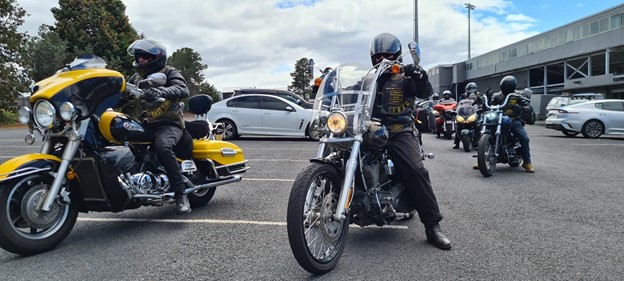
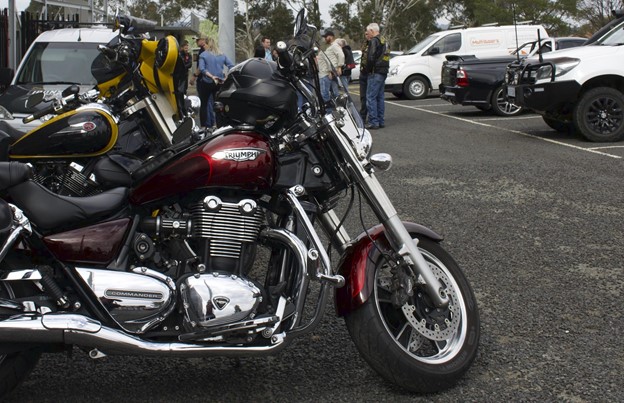
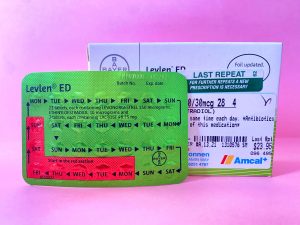
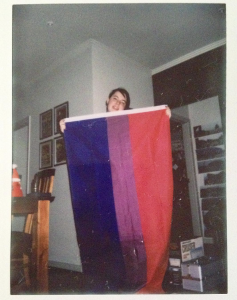
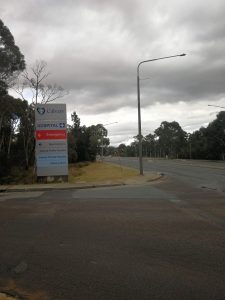
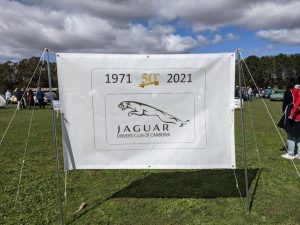
Be the first to comment!